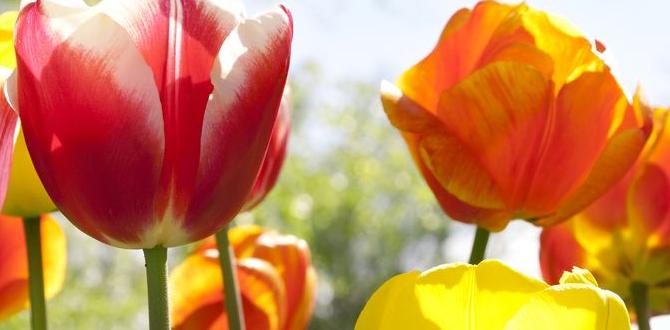Planning a trip to Addis Ababa? This essential 3-day itinerary offers a balanced mix of cultural immersion, historical sites, and local experiences. Discover the vibrant capital of Ethiopia with a structured plan that makes exploring easy and enjoyable, even for first-time visitors, ensuring a memorable adventure.
Welcome to Addis Ababa, the capital of Ethiopia and a city brimming with life! If you’re wondering how to make the most of your visit, especially for just three days, you’ve come to the right place. Many travelers find it a bit daunting to navigate a new city, but we’re here to simplify your planning.
This guide will walk you through a detailed, day-by-day plan designed for ease and enjoyment. We’ll help you experience the unique charm and rich history of Addis Ababa without feeling rushed. Get ready for an unforgettable journey!
Why Addis Ababa is a Must-Visit
Addis Ababa, meaning “New Flower” in Amharic, is more than just the capital; it’s the diplomatic heart of Africa, hosting the headquarters of the African Union. This vibrant city sits at an elevation of over 2,300 meters, offering a unique climate and breathtaking views. It’s a place where ancient traditions meet modern aspirations, creating a fascinating tapestry of culture, history, and bustling city life. From its world-renowned coffee ceremonies to its poignant historical museums, Addis Ababa offers a rich sensory and intellectual experience for every traveler.
Before You Go: Essential Travel Tips
To ensure your trip is smooth and stress-free, a little preparation goes a long way. Here are some practical tips for your Addis Ababa adventure:
Visa Requirements
Most nationalities require a visa to enter Ethiopia. You can typically apply for an e-visa online before your trip through the official Ethiopian immigration website, or obtain a visa on arrival at Bole International Airport (ADD) for eligible nationalities. It’s always best to check the latest requirements for your specific country well in advance.
Currency
The local currency is the Ethiopian Birr (ETB). ATMs are available in Addis Ababa, and major hotels and some shops accept credit cards, but it’s advisable to carry some cash for smaller purchases, markets, and taxi fares. Exchange bureaus are also common.
Health and Safety
Consult your doctor about recommended vaccinations and malaria precautions before traveling. Addis Ababa adheres to generally safe travel standards for a major city. Common sense precautions, like avoiding walking alone in poorly lit areas at night and being aware of your surroundings, are recommended. Staying hydrated is also important due to the city’s high altitude.
Getting Around
Taxis are the most convenient way to get around. Agree on the fare before your journey or ensure the meter is used. Ride-sharing apps like Ride and ZayRide are also popular and can be more straightforward. For shorter distances or a more local experience, blue and white minibusses are an option, though they can be crowded.
Connectivity
Purchasing a local SIM card upon arrival at Bole International Airport is highly recommended for affordable data access. You can find providers like Ethio Telecom. Hotels and many cafes offer Wi-Fi, but it can be inconsistent.
Packing Essentials for Comfort
Given the high altitude and varying temperatures, pack layers. Comfortable walking shoes are a must. Sunscreen, a hat, and sunglasses are useful. For those concerned about personal care or extended travel, packing travel-sized essentials, including adult or child diapers if needed for long flights or sensitive situations, can significantly enhance comfort and provide peace of mind. Consider packing versatile clothing that can be dressed up or down.
Your Addis Ababa 3-Day Itinerary: Essential Guide
Start your adventure with this carefully crafted itinerary, designed to give you a comprehensive taste of Addis Ababa’s most captivating attractions.
Day 1: History, Culture, and Coffee
Today is all about diving into the historical heart of Addis Ababa and experiencing its rich cultural tapestry.
Morning (9:00 AM – 12:00 PM): National Museum of Ethiopia
Begin your exploration at the National Museum. This is where you’ll find “Lucy,” the 3.2-million-year-old hominid fossil that put Ethiopia on the paleoanthropological map. The museum also houses a fascinating collection of ancient artifacts, traditional art, and historical Ethiopian regalia. It’s an excellent starting point to understand the country’s deep historical roots.
Lunch (12:00 PM – 1:00 PM): Traditional Ethiopian Cuisine
For lunch, find a nearby restaurant to enjoy authentic Ethiopian food. Look for places serving injera (a sour fermented flatbread) with various stews (wots), such as doro wat (chicken stew) or missir wat (lentil stew). Recommended eateries include Yod Abyssinia or Bejajegna Restaurant for an immersive experience.
Afternoon (1:00 PM – 4:00 PM): Holy Trinity Cathedral & Tekle Haimanot Church
Next, visit the Holy Trinity Cathedral, the second most important place of worship in Ethiopia after the Church of the Holy Sepulchre in Jerusalem. It’s the final resting place of Emperor Haile Selassie and Empress Menen. The impressive architecture and the serene atmosphere are truly remarkable. Nearby, you can also visit the Tekle Haimanot Church, often less crowded but equally significant in its spiritual and architectural beauty.
Late Afternoon (4:00 PM – 6:00 PM): Merkato Exploration
Experience the vibrant chaos of Merkato, one of Africa’s largest open-air markets. It’s an incredible place to witness daily life, browse local crafts, spices, agricultural products, and observe the hustle and bustle. Be mindful of your belongings and consider hiring a local guide to navigate its maze-like alleys and negotiate prices. It’s a sensory overload in the best possible way.
Evening (7:00 PM onwards): Dinner and Traditional Music
For dinner, embrace the Addis Ababa nightlife with a visit to a cultural restaurant that offers traditional Ethiopian music and dance performances. Places like Fendika Cultural Center or Yod Abyssinia are excellent choices for enjoying delicious food while being entertained by energetic folk dances and music. This is a fantastic way to immerse yourself deeper into Ethiopian culture.
Day 2: Artistic Flair and Panoramic Views
Today focuses on art, panoramic vistas, and a deeper dive into Ethiopian heritage.
Morning (9:00 AM – 12:00 PM): Entoto Hill
Start your day with a trip up Entoto Hill, the highest point in Addis Ababa. It offers spectacular panoramic views of the city sprawling below. Historically significant, it was the site of Emperor Menelik II’s original palace. You can visit the Entoto Maryam Church and the adjacent palace museum, which provides insights into the imperial era. The natural scenery up here is also refreshing.
Lunch (12:00 PM – 1:00 PM): Cafe Culture
Descend from Entoto and enjoy lunch at one of Addis Ababa’s many modern cafes. These often offer a mix of international and local dishes, alongside excellent coffee. Try a place like C fresh or Kaldis Coffee for a relaxed atmosphere and good food.
Afternoon (1:00 PM – 4:00 PM): Addis Ababa Museum (State University) and Art Galleries
Visit the Addis Ababa University Museum for a look at the country’s development and ethnography. Afterward, explore some of the city’s burgeoning art scene. Galleries like Makush Art Gallery or Lela Art Gallery showcase contemporary Ethiopian artists, offering a glimpse into the modern soul of the nation. This provides a contrast to the historical sites visited on Day 1.
Late Afternoon (4:00 PM – 5:30 PM): Coffee Ceremony Experience
No visit to Ethiopia is complete without experiencing a traditional coffee ceremony. Many cafes and cultural centers offer this ritual. Watch as green coffee beans are roasted, ground, and brewed in a traditional clay pot (jebena). The aroma is incredible, and it’s a wonderfully social and relaxing way to experience Ethiopian hospitality. This is often considered the most important social occasion of the day.
Evening (7:00 PM onwards): Dinner in Bole District
The Bole district is known for its upscale restaurants and lively atmosphere. Enjoy dinner at a restaurant here, offering a wide range of cuisines, from international flavors to modern Ethiopian fusion. It’s a great area for people-watching and enjoying a sophisticated evening out.
Day 3: Wildlife, Markets, and Farewell
Your final day offers a chance to connect with nature and pick up last-minute souvenirs.
Morning (9:00 AM – 12:00 PM): Red Terror Martyrs’ Memorial Museum
For a deeper understanding of Ethiopia’s more recent history, visit the Red Terror Martyrs’ Memorial Museum. This museum is dedicated to the victims of the Derg regime’s “Red Terror” (Qey Shibir) during the late 1970s. It’s a powerful and moving experience, housing graphic displays, artifacts, and personal accounts. While somber, it offers crucial context to Ethiopia’s political evolution and resilience.
Lunch (12:00 PM – 1:00 PM): Local Eatery Near Museum
Find a simple, local eatery near the museum for lunch, allowing you to continue absorbing the local atmosphere. This is a good opportunity to try a simple lentil or vegetable dish, a common and delicious staple.
Afternoon (1:00 PM – 4:00 PM): Sholla Market (Assegid Tera) or Craft Market
Spend your afternoon souvenir shopping. Sholla Market (also known as Assegid Tera) is a fantastic place to find a wide array of local handicrafts, traditional clothing, spices, and jewelry. Alternatively, visit one of the dedicated craft markets for higher-quality items. This is your chance to pick up meaningful gifts and mementos. Remember to bargain politely!
Late Afternoon (4:00 PM – 5:30 PM): Relax and Reflect
Before heading for your departure, find a comfortable cafe to relax, enjoy a final Ethiopian coffee, and reflect on your incredible journey. It’s a moment to savor the experiences and memories you’ve made.
Evening: Departure
Depending on your flight schedule, head to Bole International Airport (ADD) with ample time for check-in.
Sample Budget Breakdown (Estimated Per Person, Per Day)
This table provides a rough estimate for a mid-range traveler. Costs can vary significantly based on your choices.
| Category | Estimated Cost (ETB) | Notes |
|---|---|---|
| Accommodation | 800 – 2000 | Mid-range hotel/guesthouse. |
| Food | 400 – 800 | Mix of local eateries and cafes. |
| Transportation | 200 – 500 | Taxis and ride-sharing (estimate). |
| Activities/Entrance Fees | 300 – 600 | Museums, sites, performances. |
| Miscellaneous | 100 – 300 | Souvenirs, tips, coffee. |
| Total Estimated Daily Budget | 1800 – 4200 ETB | (approx. $35 – $85 USD at current rates) |
Frequently Asked Questions
What is the best time of year to visit Addis Ababa?
The dry seasons, from September to February and June to August, are generally considered the best times to visit Addis Ababa. These periods offer pleasant weather with less rain, making it easier to explore the city’s outdoors and attractions.
Is Addis Ababa safe for solo travelers?
Addis Ababa is generally safe for solo travelers, especially when taking standard precautions. Stick to well-lit areas, avoid displaying valuables, and use reputable transportation like ride-sharing apps or metered taxis. Being aware of your surroundings and trusting your instincts will help ensure a safe trip.
How much does a taxi typically cost in Addis Ababa?
Taxi fares can vary. For short rides within the city center, expect to pay anywhere from 50 to 200 ETB. It’s always best to agree on a price before starting your journey or ensure the driver uses the meter. Ride-sharing apps can offer more transparent pricing.






